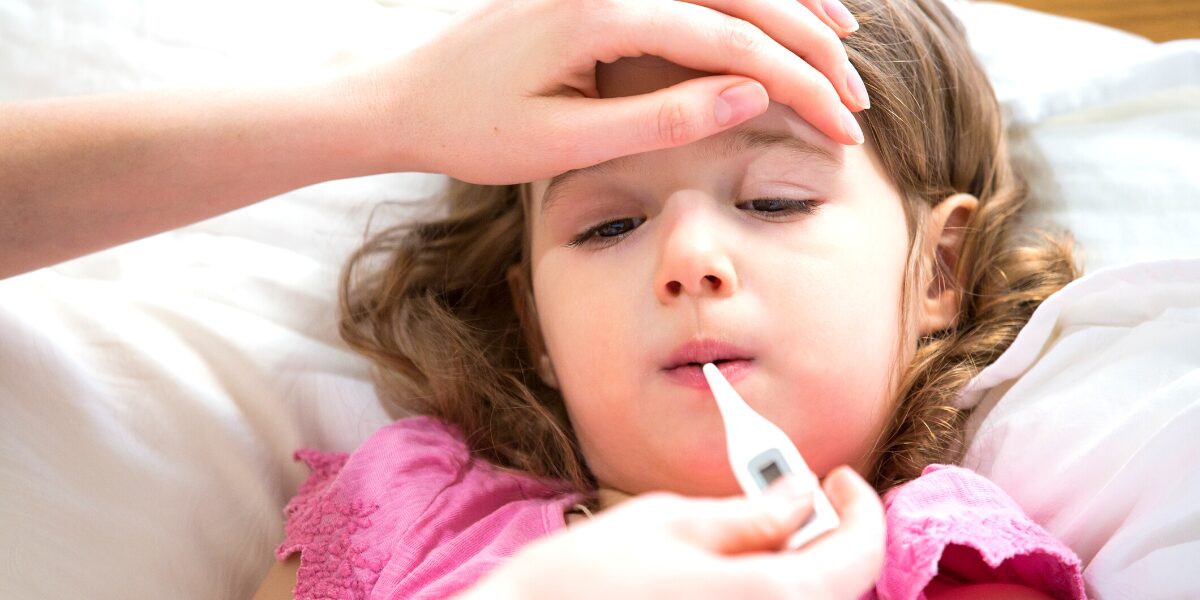What are the symptoms of roseola?
Roseola, also known as roseola infantum or sixth disease, is a common viral illness primarily affecting young children. The symptoms typically include:
- High Fever: A sudden high fever that can last for 3 to 5 days is often the first sign of roseola.
- Rash: After the fever subsides, a rash usually appears. This rash starts on the trunk and may spread to the arms, legs, and face. It consists of small, pink or red spots and can sometimes merge into larger patches.
- Irritability: Children may be unusually irritable or fussy during the illness.
- Mild Respiratory Symptoms: Some children may experience mild respiratory symptoms such as a runny nose or cough.
- Swollen Lymph Nodes: Swelling of lymph nodes in the neck and behind the ears can occur.
- Fatigue: Children may appear more tired or lethargic than usual.
The fever typically precedes the rash by a few days, and once the rash appears, the fever usually resolves quickly. Roseola is generally a mild illness and often resolves on its own without treatment. If you suspect roseola or have concerns about a child’s symptoms, consulting a healthcare professional is recommended.
What are the causes of roseola?
Roseola is caused by two main viruses, which are part of the herpesvirus family:
- Human Herpesvirus 6 (HHV-6): This is the most common cause of roseola. There are two types, HHV-6A and HHV-6B, with HHV-6B being the primary virus associated with roseola.
- Human Herpesvirus 7 (HHV-7): This virus can also cause roseola, though it is less commonly involved compared to HHV-6.
These viruses are typically spread through respiratory droplets or direct contact with an infected person’s secretions. The illness is most common in infants and young children, usually between the ages of 6 months and 2 years. Roseola is highly contagious, but most people will develop immunity after an initial infection.
What is the treatment for roseola?
Roseola is generally a mild illness that often resolves on its own, so treatment mainly focuses on managing symptoms and ensuring comfort. Here’s what is typically recommended:
- Fever Management: Over-the-counter medications like acetaminophen (Tylenol) or ibuprofen (Advil, Motrin) can help reduce fever and alleviate discomfort. It’s important to follow dosing instructions carefully and consult a healthcare provider before giving these medications to young children.
- Hydration: Preventing dehydration is important, especially if they have a high fever. Offer plenty of fluids like water, clear soups, or oral rehydration solutions.
- Comfort Measures: Ensure the child is comfortable by providing a cool environment and using light clothing or blankets. Rest is important for recovery.
- Observation: Monitor the child for any signs of complications or worsening symptoms. Although rare, it’s important to seek medical advice if there are concerns.
- Avoidance of Aspirin: Aspirin should not be used in children with viral infections due to the risk of Reye’s syndrome, a serious condition that can affect the liver and brain.
In most cases, roseola resolves without the need for specific antiviral treatment or antibiotics, as it is caused by a virus and not bacteria. If you have any concerns or if the child’s condition seems severe or unusual, consulting a healthcare professional is always a good idea.

Leave a Reply
You must be logged in to post a comment.